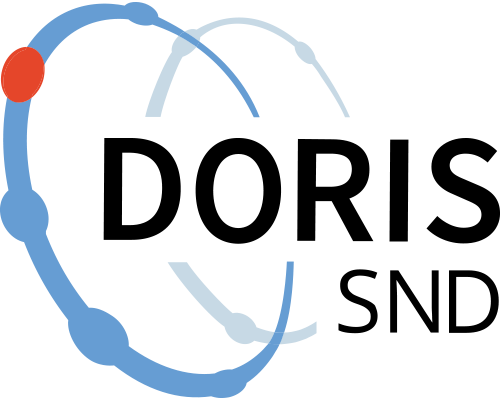The Swedish National study on Aging and Care in Kungsholmen (SNAC-K) - SNAC Stockholm eldercare (former "SNAC-K vårdsystemdelen"; 2015- )
The national study SNAC - The Swedish National Study on Aging and Care, includes four participating areas: SNAC-Blekinge, SNAC Kungsholmen, SNAC Nordanstig and SNAC Skåne (GÅS). In all four areas, a research centre conducts a population study and a health care system study. (Metadata related to the main study SNAC and the other participating areas can be found under the Related studies tab).
SNAC-K Kungsholmen
SNAC-K is conducted by the Stockholm Gerontology Research Center in collaboration with Aging Research Center (ARC), Karolinska Institutet.
SNAC-K population study:
The population study consists of a clinical examination of persons over 60 years, who live in the area of Kungsholmen/Essingeöarna. The baseline data collection includes information on present status and past events. The information has been collected through interviews, clinical examinations, and testing. All staff (nurses, psychologists, and physicians) has been trained for data collection. Each subject has been examined for six hours on average; two hours for the social interview and the assessment of physical functioning (performed by a nurse); two hours for clinical examination, including geriatric, neurological and psychiatric assessment (performed by a physician); and two hours for cognitive assessment (performed by a psychologist).
SNAC-K care system study:
The care system data collection consists of continuous recording of the provision of public eldercare for persons over 65 years. For 2004-2020, data comprise all recipients of municipal eldercare in the district of Kungsholmen. Starting in 2015, data comprise all recipients of municipal eldercare in the whole municipality of Stockholm. Data are based on individual assessments made by the municipal need assessors for each decicison regarding the provision of eldercare services. Data include information about the type and amount of care and services granted, as well as information on need indicators (e.g., disability,physical function, cognitive impairment, mental health, living situation, housing). For specific research questions, data from the care system study can be complemented with register data on health care consumption provided by the Region of Stockholm (VAL-databas). The care system perspective and the population perspective are joined through those elderly persons who participate in both parts of the study.
Purpose:
Population study: The purpose is to study the transition from normal aging to morbidity and impaired functional ability by identify how social and biological factors, and the environment, affect older people's health, functional ability and life expectancy. The intention is to study the positive and negative events in life that may be relevant to aging.
Care system study: The aim of SNAC-K care system study is to continuously monitor the allocation of public eldercare in relation to need indicators. Collected data can be used as a basis for planning, resource allocation and evaluation of the provision of eldercare services and health care among older adults. Available data can also be used in research and development around the issues of the provision of social and heath care. The connection to the SNAC-K population study gives a unique opportunity for comparisons between care recipients and non-recipients.
"SNAC Stockholm Eldercare" är en expansion of the care system study that has been conducted in the district of Kungsholmen 2004-2020. From 2015 and onwards, all individuals aged 65 and older in the municipality of Stockholm who have been granted eldercare services are included (annually ~21000 individuals). Data are based on the standardized documentation of individual need-assesments conducted by municipal need-assessors. For each new/updated decision, the type and amount of care services granted, sociodemographic factors as well as need-indicators are registered. Need-indicators comprise e.g., physical and cognitive functioning, need for help with activities of daily living (ADL), mental health, and informal care. Each (updated) decision generates a new registration which makes it possible to follow individuals from the first time they are granted eldercare services to the end of life. For analyses of the interplay of eldercare services and healthcare services, for specific research questions, data on the provision of eldercare services may be complemented with data on healthcare consumption provided by the region of Stockholm (VAL-database)
Go to data source
Opens in a new tabhttps://www.snac-k.se/about/study-plan/
Citation and access
Citation and access
Data access level:
Creator/Principal investigator(s):
Research principal:
Data contains personal data:
Yes
Type of personal data:
Personal identification number, encrypted personal identification number
Code key exists:
Yes
Sensitive personal data:
Yes
Citation:
Method and outcome
Method and outcome
Geographic coverage
Geographic coverage
Administrative information
Administrative information
Topic and keywords
Topic and keywords
Relations
Relations
Publications
Publications
Metadata
Metadata
Version 1

Stockholm Gerontology Research Center Foundation